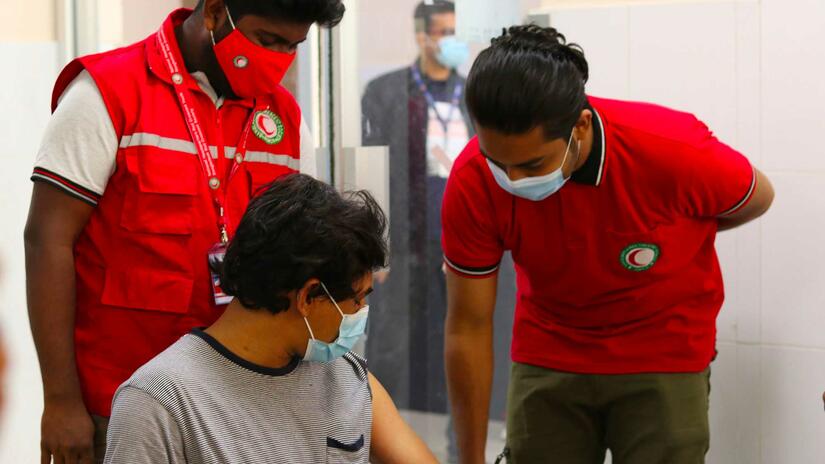New York, 17 February 2021 – The chief executive of the world’s largest humanitarian network has warned world leaders of the consequences of high levels of mistrust and persistent inequity in the distribution of COVID-19 vaccines.
In a briefing to a UN Security Council high-level meeting on COVID-19 vaccines, Jagan Chapagain, the Secretary General of the International Federation of Red Cross and Red Crescent Societies (IFRC), spoke first of the impact of mistrust on virus response efforts. He said:
“When communities do not understand health interventions, they will not accept them. Instead, they are likely to see these health measures as threats, which can lead to violence. We saw this many times during (recent) Ebola outbreaks and we have all seen this many, many times during the COVID-19 pandemic.
“Put simply: mistrust kills. When science is not only ignored but derided, when the decision to wear masks becomes controversial and when the web is filled with absurd rumours, trust in the tremendous efforts to stop the pandemic is severely undermined. When mistrust prevails, it stops people from getting the help they need, and it prevents us from ending public health emergencies. It can even lead to people incorrectly blaming ‘others’ – foreigners, migrants or other minority groups – for the spread of an illness.”
Mr Chapagain went on to share the IFRC’s deep concerns about pervasive inequality and inequity in the distribution of COVID-19 vaccines worldwide. According to IFRC analysis, less than 1 per cent of COVID-19 vaccine doses globally have been administered in the 32 countries currently facing severe or very severe humanitarian crises.
Mr Chapagain said:
“People trust us for our actions. They look at what we do, and they judge us for what we do not do. They see, clearly, the current high levels of vaccine inequity and inequality.
“Equity is not something that happens on its own. History tells us this. Just as we need to ensure that all countries can access vaccines, we also need to make sure that those vaccines reach the arms of all the people who need them.
“Underserved, alienated, or isolated communities, including those living in areas not under the control of States, as well as detainees, IDPs and refugees, must be integrated in national vaccination efforts. Strong involvement of the International Red Cross and Red Crescent Movement and other local impartial organizations in vaccination activities can help ensure that these communities are not left behind.
Earlier this month, the IFRC announced a 100 million Swiss franc plan to support the equitable distribution of COVID-19 vaccines. If fully funded, the plan will support the immunization of 500 million people against the virus.
Under the plan, Red Cross and Red Crescent Societies will support national vaccination efforts, including through activities designed to build trust and awareness of vaccines.
Red Cross and Red Crescent volunteers will also seek out communities and individuals that are economically, socially or geographically isolated to ensure their involvement in vaccine efforts. And trained personnel will, in many countries, be responsible for the physical delivery of vaccines to at-risk and vulnerable groups.

